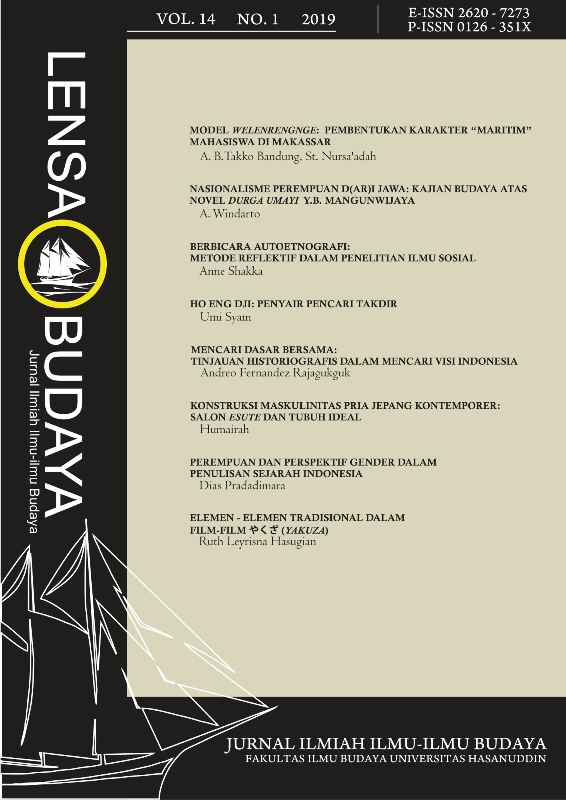ELEMEN - ELEMEN TRADISIONAL DALAM FILM-FILM YAKUZA)
DOI:
https://doi.org/10.34050/jlb.v14i1.9658Abstract
This paper discusses yakuza films, one of the more popular genres in Japan between 1960 and 1970s that portray yakuza—a mafia-like organization which have existed since Tokugawa period. They began as protector of the lower class; yakuza began slowly to modernize themselves and began to be involved in various organized criminal syndicates in Japan. Eventually yakuza gave new colors in Japanese cinema where directors put yakuza into public arenas. In this paper it will be explained the shifting uses of traditional elements in the yakuza films. These are giri-ninjou (social obligation and compassion), yubitsume (finger-shortening ritual), irezumi (tattoo), katana (sword), kimono (Japanese traditional attire), and sakazukigoto (sake-cup exchange rituals) in each film analyzed. Through semiotic analysis and by looking at selected yakuza films, it can be seen the shifts in their uses of the aforementioned elements. These shifts also mark the growing inclusions of western elements in the films combined with Japanese ones. Keywords: yakuza, Japanese films, traditional elements, western influencesDownloads
Download data is not yet available.
Downloads
Published
2020-03-16
Issue
Section
Articles

